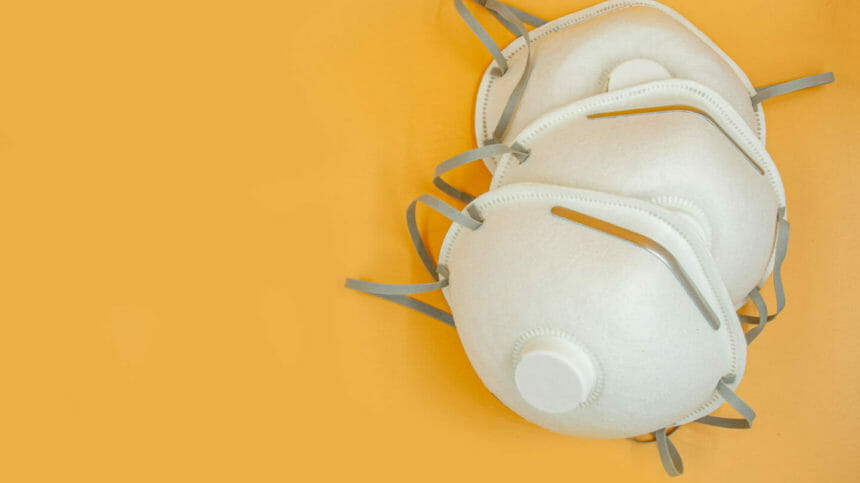
COVID-19 positivity rates are no different between healthcare workers wearing respirators or medical masks when performing non-aerosolizing routine patient care, a new study has found.
Investigators identified more than 1,400 workers who were tested for SARS-CoV-2 at Kaiser Permanente Southern California between March 13 and Aug. 3, 2020. Fully 42% of the participants were exposed to the virus, and 68% developed symptoms. Nearly a third (31%) worked in high-risk areas and 28% had underlying health conditions. Overall, 21% wore respirators, 51% wore medical masks and 27% wore no masks at the time.
The researchers found no difference in positivity whether workers wore respirators or medical masks. But the participants who wore no mask were at significant risk of testing positive when compared to their mask-wearing co-workers, reported first author Aldon Li, M.D., of the University of California, Riverside, CA, and Kaiser Permanente, Los Angeles.
Only two nurses and two technicians had positive tests following exposure. None were from confirmed aerosolizing exposures and all occurred prior to universal masking implementation. In addition, more than 95% of the study participants acquired COVID-19 outside of known patient-related exposure events, Li and colleagues found. This may be due to improper donning and doffing of masks during social interactions with other healthcare workers in either the workplace or the community, they suggested.
The results support other recent findings that medical masks protected healthcare workers from acquiring COVID-19, the authors noted.
The workers’ low exposure to COVID-19 may reflect a low incidence of aerosol exposures and the early adoption of universal masking, the authors theorized. Those factors may have decreased high-risk exposures of unmasked healthcare workers to unmasked infectious patients.
The study was published in JAMA Network Open.




